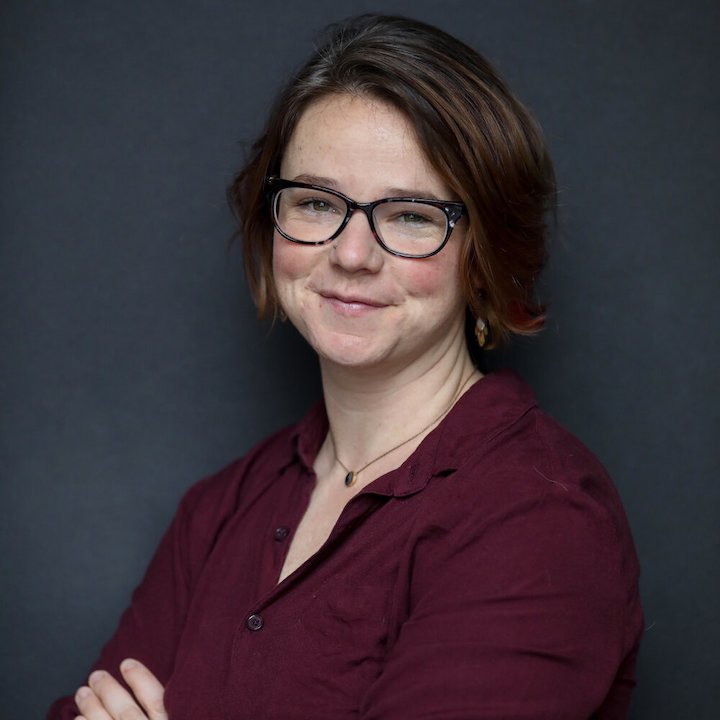The seventeenth Developer Avocado 🥑 we interviewed for this year’s advent was Mary Thengvall. She’s recorded the answers to our questions in a video, which we’ve hosted on youtube and lightly transcribed here for posterity. Enjoy, and we’ll see y’all tomorrow!
[Transcript]
Tell us a bit about yourself.
Hi there, my name is Mary Thengvall. I am the Director of Developer Relations at a company called Camunda. We are an open-source process automation platform and I lead a team of currently nine people - across developer advocates as well as community managers and a developer experience team too.
How did you get into Developer Relations?
I got into Developer Relations kind of by accident, which I feel is a fairly common answer throughout the industry, actually. I have a journalism background, I loved writing features, I loved learning more about people and helping to tell their stories. But when I graduated from college, all of the newspapers were starting to let go of their writing staff because the internet was starting to become the place where people went for news. And so I pivoted into public relations and landed a job at O’Reilly Media. Which is a company many of you might know. They are famous for their technology books, for the woodcut animals on their tech books as well as for the fantastic conferences that they put on over the years.
And as I started working with them, writing press releases for the new book releases and working on the conferences, I started investing more in learning about technology and better understanding those topics that we were addressing. But also investing in the community, trying to understand where they were coming from. Why we were writing books on the particular topics that we were addressing. Why we were focused on particular topics at our conferences and really trying to get a better understanding of how we were making the decisions of which topics to pursue and which topics weren’t worth digging into further. And how to track better patterns throughout the industry. So I kept asking a lot of questions: who are we talking to, how do we know that these are the questions that our community has, how do we know these are the right directions to head in. And I was eventually told go ask those questions, go figure those things out, let us know what you hear and we’ll see if it’s successful. And that was kind of my start into community building and really just listening to the community and investing in that community and learning how to best tell their stories. Which is what I loved about journalism in the first place.
Since then I’ve worked with a variety of developer communities from DevOps to open-source to front-end javascript to email developers and now, like I said, I’m working for a company that focuses on open source from a process automation standpoint. So working across a ton of different industries, a lot of different companies, enterprise companies as well as folks who were working with us individually, contributing back to our products and providing us with even better features and plugins to then help build our community and make it an even better product for everybody using it.
What advice would you give people looking to join you?
The advice that I would give to people looking to join Developer Relations is to be open to asking questions. I think there’s a misconception in the tech industry as a whole that if we don’t have the answer to every single question that someone asks us, we aren’t doing our job right. And so we can’t ever admit that we don’t know when someone asks us a challenging question. I think by being authentic and admitting when we don’t know the answer to something, letting people know “I’m not sure. let’s go find out together”, you wind up learning a lot more, you end up being able to address those questions better the next time. And you also get to build those authentic relationships and let people know it’s okay to not know everything. It’s okay to still be learning, it’s okay to still be curious about what’s happening around us and it encourages others to continue learning and asking questions as well. That also provides a safe place for them to come and know that they can ask questions because you’re okay with asking questions, you’re okay with not knowing everything and so then, you’re more than likely to help mentor and assist them in finding out answers to their questions as well.
How has your role changed in the past year?
My role personally has changed a lot in the past year. I moved from a consulting position, working with a variety of companies across the tech industry, into this Director of Developer Relations role at Camunda. But referring to Covid specifically, the biggest change has just been I haven’t been travelling, and on the road. There’s a couple of downsides to that, there are many of our community members that I haven’t ever met in person. All of our interactions, all of my engagement with them, has been online up until this point. And I miss that, I miss being able to get to know people at that deeper more personal level, simply because we’re hanging out in person at a conference or a meetup or an event around the world.
On the other hand, as far as content that my team is putting out, there’s not much that has changed, to be honest. Part of that is because the philosophy that I take with Developer Relations is: we should never be using content only once. So if there’s a conference talk that you’re giving, that should also be turned into a blog post. There can also be a live stream that goes along with it. We could also benefit from maybe improving our documentation, or coming up with another use case. Or things like that, where we’re always repurposing content and reusing content. Part of that is because I don’t want to be skipping from project to project. I want us actually getting the value out of the projects that we choose to invest in. But part of that also is recognizing that not everybody benefits from one particular type of content. So people who learn best over video will probably learn a lot from your conference talks or your live streams. But there’s other people who learn more through blog posts or through other formats, right, through podcasts maybe, if it’s a less technical presentation and more conceptual. And so by repurposing that content, it allows us to reach a broader audience in addition to getting our content out there in different ways instead of only doing it once and being done with it.
The biggest thing personally., besides taking this new job, has just been not being able to be out there connecting with other Developer Relations professionals. That’s been the biggest thing that I’ve missed for sure because I am hugely passionate about the DevRel industry. I’m passionate about providing resources for the DevRel industry and getting to know people and figuring out how I can help them. And so there’s been a lot of limitations to being in my own home. I’ve wound up engaging with a lot more people online, which has been great. But there has been some zoom fatigue and places where I’ve had to set up some boundaries. And not be as open and available as I would like sometimes. So I miss the in-person interactions, especially.
How do you see the future of DevRel?
As far as the future of DevRel, there’s a lot of places that I think are growing exponentially. A lot more companies are looking for Developer Relations professionals, a lot more companies are wanting to work toward creating a developer community. Or building on the community that they already have and providing better resources, better enabling them to use the products, generating more awareness, things like that. Part of that, I think, is because as more and more startups are being created, people are realizing that almost all of them touch developers in some way. They’re either the end-users or they’re building on top of those products.
There’s some engagement needed with a developer community at the end of the day. And so making sure that there’s a team in place whose role is specifically geared toward working with that developer audience and who understands that developer audience is a key part of succeeding. I think in the future we’re really going to see companies - who truly understand the value of Developer Relations and understand the value that we bring not only to the communities but also to the company - will start to pull away from the rest of the competition. So it’s really going to be a defining factor in the success of technical products and the success of technical companies down the road.
I think more and more we’re going to be seen as, our industry is going to be seen as, a competitive advantage. If a company knows the value of Developer Relations and is able to do it right, they’re going to do better in the industry. They’re going to attract more people, they’re going to have a better product because they’re listening to their community, they’re implementing that feedback and they’re passionate about providing a product that their company can stand behind. Because the community is supporting it and the community is engaged and knows that the people at the company have their best interests in mind at all times.




